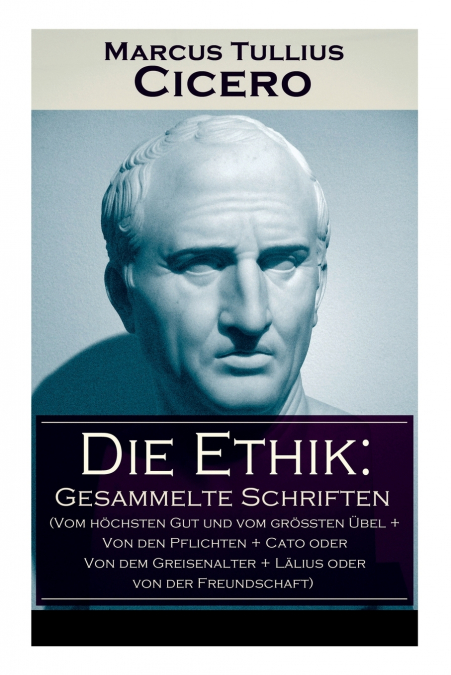
Julius von Kirchmann / Marcus Tullius Cicero / Raphael Kuhner
 Donde los libros
Donde los libros
 Librería 7artes
Librería 7artes
 Librería Elías (Asturias)
Librería Elías (Asturias)
 Librería Kolima (Madrid)
Librería Kolima (Madrid)
 Librería Proteo (Málaga)
Librería Proteo (Málaga)
Cicero (106 v. Chr.- 43 v. Chr.) war ein römischer Politiker, Anwalt, Schriftsteller und Philosoph, der berühmteste Redner Roms und Konsul im Jahr 63 v. Chr. Cicero war einer der vielseitigsten, aber auch wankelmütigsten Köpfe der römischen Antike. Seine Bedeutung auf philosophischem Gebiet liegt in erster Linie nicht in seinen eigenständigen Erkenntnissen, sondern in der Vermittlung griechischen philosophischen Gedankenguts an die lateinischsprachige Welt; oft sind seine griechischen Quellen nur in seiner Bearbeitung greifbar, da sie sonst nirgends überliefert sind. Inhalt: • Vom höchsten Gut und vom größten Übel besteht aus fünf Büchern, in denen sich Cicero mit den Philosophierichtungen des epikureischen Hedonismus, der Stoa und des Peripatos auseinandersetzt und diese dem römischen Leser vorstellt. • Von den Pflichten ist eines der Standardwerke antiker Ethik. In ihm werden kurzgefasst die Pflichten des täglichen Lebens behandelt, insbesondere die eines Staatsmannes. • Cato oder Von dem Greisenalter ist ein fiktiver Dialog des antiken Autors Marcus Tullius Cicero. Der Titel rührt daher, dass Marcus Porcius Cato der Ältere, bei dem es sich um eine historische Persönlichkeit handelt, als 83-jährige Hauptfigur in Ciceros Werk auftritt und seine philosophischen Ansichten über das Alter vorträgt. • Lälius oder von der Freundschaft ist in Dialogform geschrieben und erörtert, wie schon im Titel angegeben ist, die Freundschaft. Als Quellen könnten Cicero unter anderem Werke von Panaitios von Rhodos und Aristoteles gedient haben.